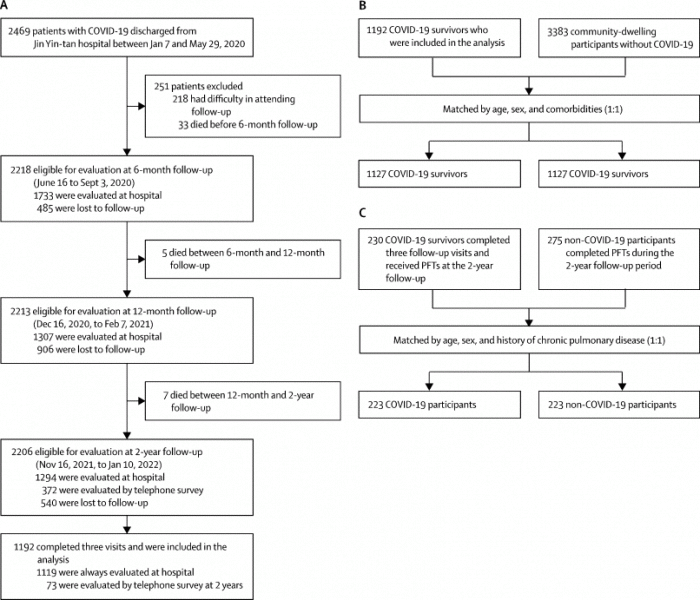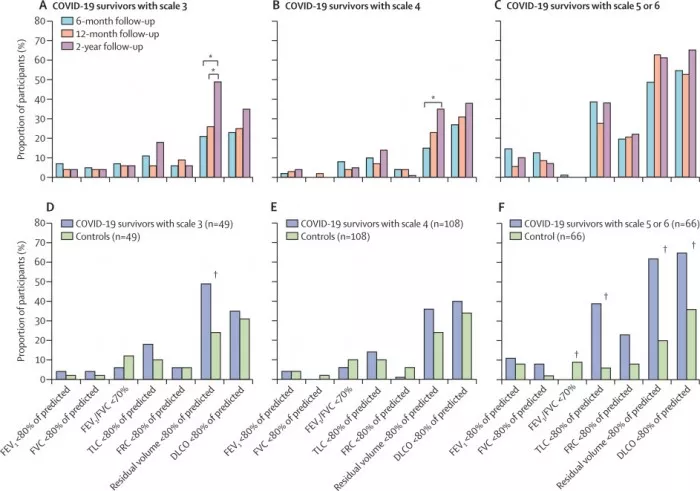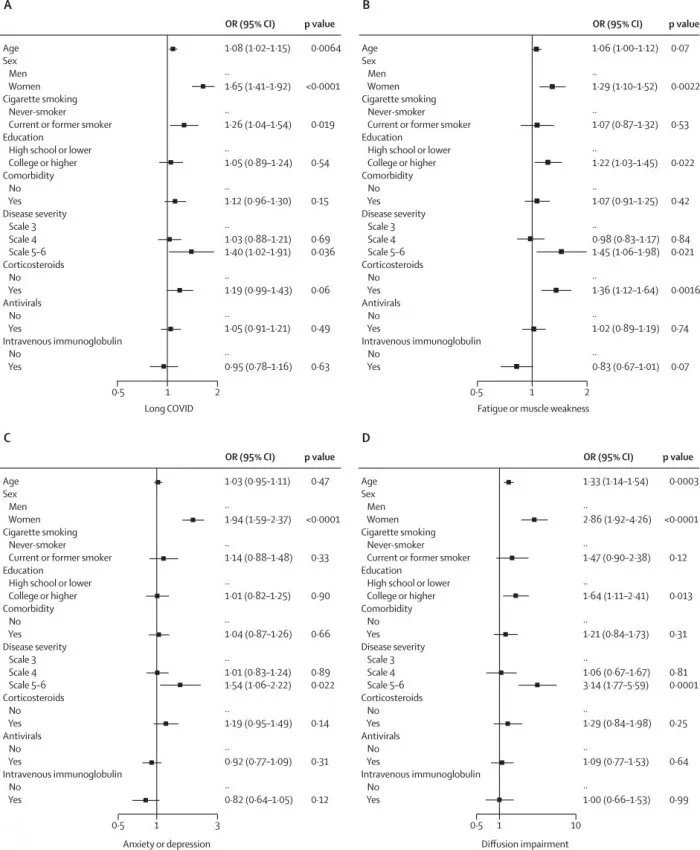According to the longest follow-up study to date published in the lancet respiratory medicine on May 11, half of the patients admitted two years after covid-19 infection still had at least one symptom. The study tracked 1192 participants infected with sars-cov-2 in China during the first phase of the pandemic in 2020.
Although the physical and mental health of those who recovered generally improved over time, the analysis showed that the health and quality of life of covid-19 patients still tended to be worse than the general population. This is especially true for participants with long-term covid, who usually have at least one symptom after the first two years of illness, including fatigue, shortness of breath and difficulty sleeping.
The long-term health impact of covid-19 in more severe conditions requiring hospitalization remains largely unknown, as the longest follow-up study to date is about one year. The lack of baseline health status before covid-19 and comparison with the general population in most studies also makes it difficult to determine how well covid-19 patients are recovering.
Main authors Professor Cao Bin of China Japan Friendship Hospital said: "Our results show that for a certain proportion of hospitalized covid-19 survivors, although their bodies may have cleared the initially infected virus, it will take more than two years to fully recover from covid-19. Continuous follow-up of covid-19 rehabilitation, especially those survivors with long-term covid symptoms, is very important to understand the longer course of the disease and further explore the benefits of rehabilitation programs The same is true of the. There is a clear need to provide sustained support to a significant number of people with covid-19 and to understand how vaccines, emerging treatments and variants affect long-term health outcomes ".
The authors of this new study sought to analyze the long-term health outcomes of hospitalized covid-19 rehabilitation patients and the specific health effects of long-term covid. They assessed the health status of 1192 acute covid-19 participants treated at Wuhan Jinyintan hospital from January 7 to May 29, 2020 for 6, 12 and two years.



The assessment included a six minute walk test, a laboratory test, and a questionnaire on symptoms, mental health, health-related quality of life, return to work, and use of medical services after discharge. The negative effects of long-term covid on quality of life, exercise ability, mental health and health care use were determined by comparing participants with and without long-term covid symptoms. A control group without a history of covid-19 infection in a general population matched for age, sex and complications was used to determine health outcomes after two years.
The median age of the participants at discharge was 57 years and 54% (n = 641) were male. After 6 months of initial illness, 68% (777 / 1149) of participants reported at least one long-term covid symptom. By two years after infection, the reported symptoms had decreased to 55% (650 / 1190). Fatigue or muscle weakness was the most frequently reported symptom, decreasing from 52% (593 / 1151) at six months to 30% (357 / 1190) at two years. Regardless of the severity of their initial illness, 89% (438 / 494) of participants returned to their original jobs two years later.
After the first two years of illness, covid-19 patients generally had worse health than the general population, 31% (351 / 1127) reported fatigue or muscle weakness, and 31% (354 / 1127) reported difficulty sleeping. The proportion of non covid-19 participants reporting these symptoms was 5% (55 / 1127) and 14% (153 / 1127), respectively. Patients with covid-19 are also more likely to report some other symptoms, including joint pain, palpitations, dizziness and headache. Covid-19 patients also reported pain or discomfort (23% [254 / 1127 ]) and anxiety or depression (12% [131 / 1127 ]) more frequently than non covid-19 participants (5% [57 / 1127 ] and 5% [61 / 1127 ], respectively).
About half of the study participants (650 / 1190) had symptoms of long-term covid at two years and reported a lower quality of life than those without long covid. In the mental health questionnaire, 35% (228 / 650) reported pain or discomfort and 19% (123 / 650) reported anxiety or depression. Covid-19 patients without long covid reported 10% (55 / 540) and 4% (19 / 540) of these symptoms within two years, respectively. Participants with long covid also reported problems with their mobility (5% [33 / 650 ]) or activity level (4% [24 / 540 ]) more often than those without long covid (1% [8 / 540 ] and 2% [10 / 540 ], respectively).
The mental health assessment of participants in the long-term covid survey found that 13% (83 / 650) showed anxiety symptoms and 11% (70 / 649) showed depression symptoms, while the proportion of non long-term covid related was 3% (15 / 536) and 1% (5 / 540), respectively. Long time covid participants used medical services more often after discharge, and 26% (169 / 648) reported outpatient visits, compared with 11% (57 / 538) of non long time covid participants. 17% (107 / 648), the hospitalization rate related to long-term covid was higher than that related to general covid by 10% (52 / 538).
Learn more: